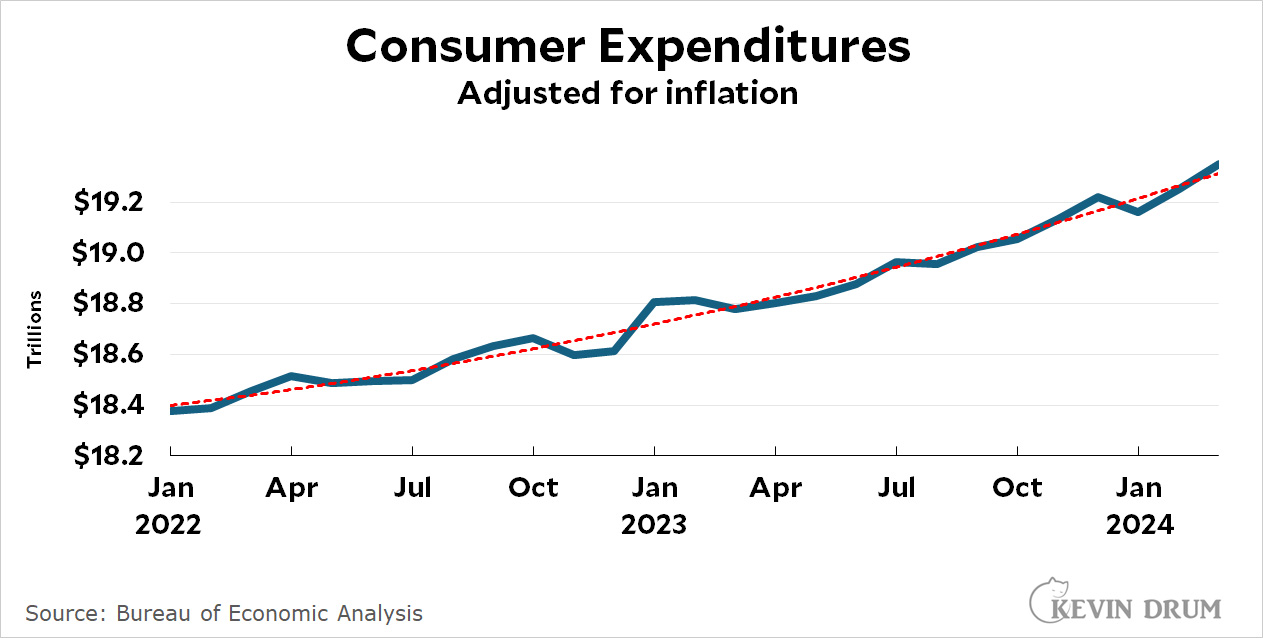The Washington Post reports today that consumer sentiment softened this month. That's true enough. But they also say this:
That pessimism is altering consumers’ spending habits. McDonald’s, Home Depot, Under Armour and Starbucks all recently reported disappointing earnings, as people cut back on fast food, kitchen renovations, sneakers and afternoon lattes.
....Employers are adding fewer jobs, wage growth has decelerated, and Americans are holding off on big purchases like homes, cars and washing machines.
Come on, folks. Do we have to keep doing this? Nobody has to guess at consumer buying habits by looking at fast food, kitchen renovations, sneakers or afternoon lattes. Why? Because every month the government publishes a nice, tidy summary of all consumer spending. Here it is through March:
 Whatever else you can say about the economy, consumers are not pulling back on spending.
Whatever else you can say about the economy, consumers are not pulling back on spending.
And guess what? The government also publishes lots of other handy statistics! I'll spare you the charts, but real wage growth has been up steadily; home sales are down from their 2021 boom year but have increased lately; auto sales are up and have been steady lately; and durable goods consumption is up. Inflation has been hovering around 3% for an entire year, which is not especially dire. Hell, even consumer sentiment, which sparked this article in the first place, has been steadily up except for the single month of May—so it's a little early to be pretending there's some kind of downward trend.
It's hard not to feel like giving up sometimes. This is not arcane information. It's all easily available in a matter of minutes from FRED or the agency websites. So why does the Post publish a jumble of misleading or outright incorrect economic statistics instead of just looking them up first? I will never figure this out.














